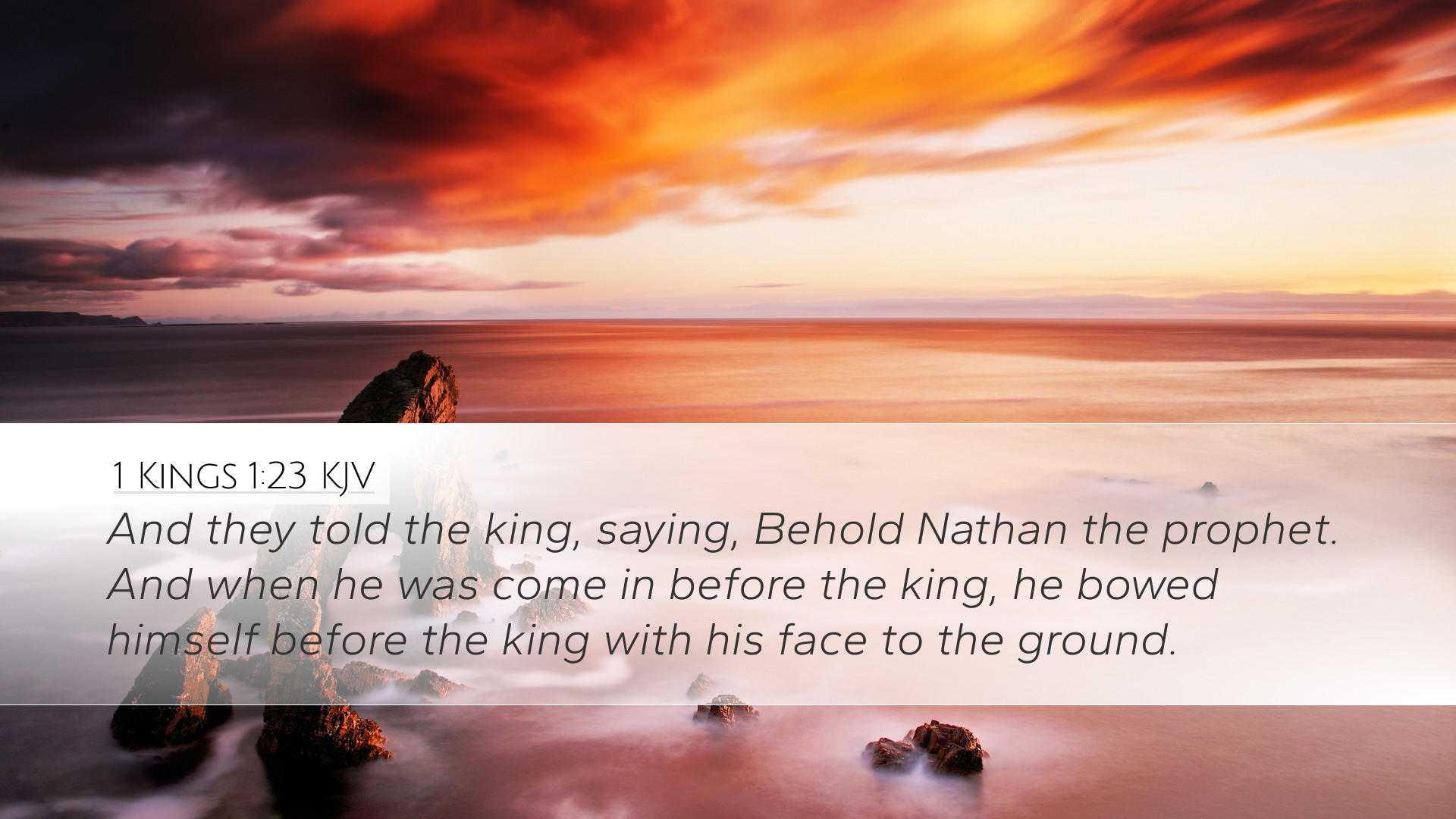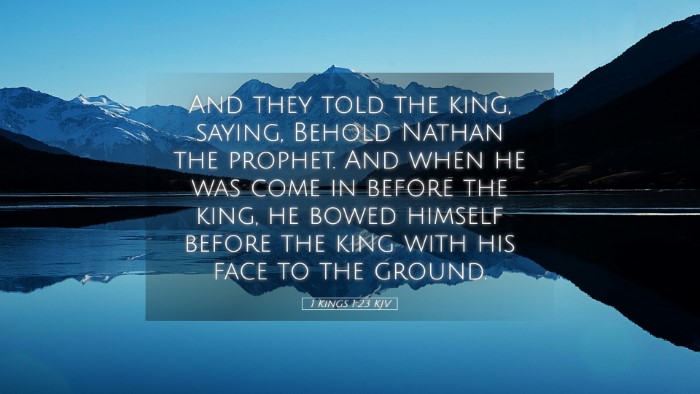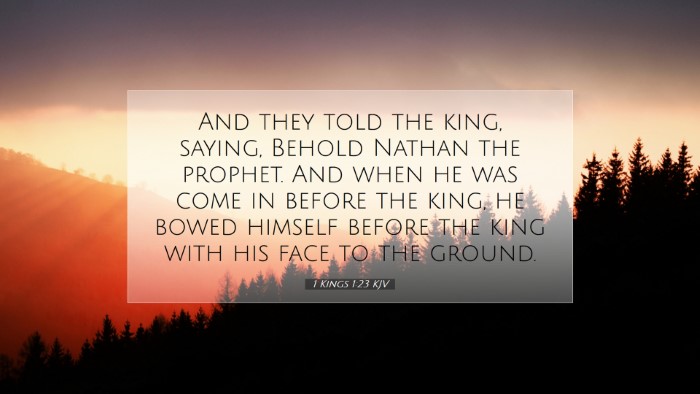Commentary on 1 Kings 1:23
1 Kings 1:23 states: "And they told the king, saying, Behold, Nathan the prophet and
Bathsheba the mother of Solomon are there." This verse occurs in the midst of a critical
transition of power in ancient Israel, highlighting the political intrigue and divine purpose
underlying the monarchy's succession.
Historical Context
The events surrounding this verse take place during the last days of King David's reign.
David is aging and his health is failing, which leads to struggles for the throne among his
sons. Adonijah, one of David's sons, has taken advantage of his father’s weakness and
proclaimed himself king, without the consent of David or divine approval.
Analysis of Characters
The characters in this verse—Nathan the prophet and Bathsheba—play crucial roles in
reaffirming Solomon's claim to the throne.
-
Nathan the Prophet: Represents the voice of God and true authority.
His involvement is significant as he has received divine insight regarding Solomon’s
kingship, as foretold to David.
-
Bathsheba: The mother of Solomon stands as a figure of courage and
determination. Her actions lead to a plea for recognition of her son’s legitimate claim
to the throne.
Theological Implications
This verse is an important reminder of God's sovereignty in the affairs of men. As Nathan
and Bathsheba approach King David, this reflects the divine orchestration at work in the
unfolding monarchy of Israel.
-
Divine Purpose: The events underscore the fulfillment of God’s promise to
David that his lineage would endure, with Solomon as the chosen successor.
-
Human Agency: Both Nathan and Bathsheba illustrate how God uses
individuals to fulfill His purposes. Their courage opens the way for divine endorsement
of Solomon’s kingship.
Commentary Insights
According to Matthew Henry, this moment in Scripture illustrates the importance of
seeking God's guidance amid political upheaval. Henry stresses that Nathan's acknowledgment
of the situation reflects a prophetic understanding that recognizes the necessity of divine
intervention for rightful leadership.
Albert Barnes emphasizes the significance of Nathan's role as a mediator who brings
to light the truth of God’s promise regarding Solomon’s kingship. Barnes notes that this
encounter illustrates the essential role of prophetic voices within the leadership structure
of Israel, serving both God and the nation.
Adam Clarke adds depth by exploring the character dynamics in this narrative. He
highlights Bathsheba's approach to David as a pivotal moment that calls forth remembrance
of God’s promise. Clarke implies that her actions demonstrate a mother’s dedication and the
necessity of conveying vital truths to those in authority.
Practical Applications
This verse, while rooted in historical context, also carries practical applications for modern
readers:
-
Understanding Authority: Recognizing the divine source and purpose of
authority can guide believers in relating to leadership in the church and society.
-
The Role of Godly Counsel: The importance of prophetic guidance in decision-making
can inform church leaders and Christians to seek wise counsel in their endeavors.
-
Active Participation in God’s Plan: Believers are encouraged to take part in the
unfolding of God’s purposes through prayer and action, just as Nathan and Bathsheba did.
Conclusion
1 Kings 1:23 captures a decisive moment in Israel's history that not only pertains to the
issue of kingship but also reveals God’s sovereignty, the importance of prophetic voices,
and the active participation of believers. Through the insights of public domain commentators,
we gain a deeper understanding of the text's significance and its relevance for contemporary faith
and practice.


